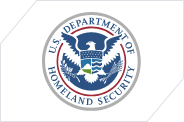With the introduction of the General Data Protection Regulation (GDPR), businesses and organizations worldwide are now required to take steps to ensure that they are compliant with this important regulation. Failure to do so can result in hefty fines, and it can be difficult for companies to know exactly what must be done in order to comply.
Fortunately, there is help available; certified GDPR consultants provide invaluable assistance and advice on how best to become compliant with all applicable regulations while protecting personal data from malicious actors.
Keep reading as we explore some key resources on how to comply with GDPR as well as what steps should be taken when there is a breach of personal data.
What is GDPR?
The General Data Protection Regulation (GDPR) is an EU regulation that sets out the rules and regulations for data protection, privacy and security of digital information. It was enacted in 2016 to replace the 1995 Data Protection Directive and went into full effect on May 25th, 2018.

Does GDPR Compliance Apply To My Organization?
In a nutshell, GDPR compliance applies to any organization that processes the personal data of EU citizens. According to the European Commission (EC), companies and entities based or with branches in the EU must comply with the General Data Protection Regulation (GDPR), regardless of where their data processing takes place.
Additionally, any firm outside of the EU that either offers goods/services (paid or for free) or monitors behavior within the bloc must also adhere to GDPR regulations.
This also applies to small and medium-sized businesses. However, if your business doesn’t revolve around processing personal data and it doesn’t threaten individuals’ rights, then certain GDPR requirements don’t apply to your organization.
What Happens If I’m Not GDPR Compliant?
If your organization fails to meet the requirements of the GDPR, you could be held liable for any resulting individual damages. Additionally, you may face a number of sanctions and potential fines up to €20 million or 4% of global annual turnover (whichever is greater) for non-compliance.
Certified &
Independent
Requirements for GDPR Compliance
The GDPR requires organizations to ensure that all personal data is processed lawfully, fairly and transparently. To comply with the regulation, organizations must:
- Implement appropriate technical and organizational measures to guarantee a level of security appropriate to the risk associated with processing personal data
- Ensure that data is only collected for specified, explicit and legitimate purposes
- Ensure personal data is accurate and up to date
- Respect the rights of individuals including their right to access, rectify and erase their personal data
- Provide notification of any breach within 72 hours
- Implement an Impact Assessment (DPIA) before processing activities
Data Portability and Data Security Requirements
As required by GDPR, data portability allows individuals to move their information from one entity to another without any damage in quality. This includes all private details and should be provided in an agreed-upon format recognized by a given country or region.
To protect the data, businesses are forced to set up appropriate safety measures such as encryption and two-factor authentication so that only approved personnel can access it while also guaranteeing its security when moving between multiple systems.
Appointing a Data Protection Officer
A Data Protection Officer (DPO) is a person within an organization who is responsible for implementing and monitoring data protection policies according to the General Data Protection Regulation (GDPR). In order to appoint a DPO in accordance with the GDPR, businesses should engage an experienced consultant or service provider. This professional can help the company understand all applicable regulations and requirements and take steps to ensure that their data is secure and compliant with the latest laws.
The consultant can also provide advice on best practices for appointing a DPO, identify any gaps or areas for improvement within the organization’s security posture, and offer guidance on roles and responsibilities, training requirements, and more.
Steps To Take When There is a Breach of Personal Data

In the event of a breach of personal data, there are several steps that should be taken in order to protect the data and ensure compliance with GDPR regulations.
- First and foremost, organizations must inform the relevant supervisory authority without delay and no later than 72 hours after becoming aware of the breach. This notification must include details about the type of breach, the data affected, and the measures taken or proposed to be taken.
- Organizations must also notify the individuals concerned if they are at risk of suffering from any adverse effects due to the security incident. In addition, organizations should conduct a review of their existing processes and policies in order to identify any weaknesses that may have been exploited during the breach.
- Finally, organizations must take appropriate technical and organizational measures to prevent future breaches of personal data. A GDPR consulting firm can provide invaluable advice and guidance on how to implement these steps in order to protect the privacy of individuals while ensuring that your organization remains compliant with the relevant regulations.
Benefits of GDPR Consultants
Hiring a GDPR consultant or service provider can help organizations ensure that their data is protected and secure in compliance with the latest regulations. The GDPR is an important regulation for businesses of any size, and it is essential to have the right tools and resources in place to protect personal data.
A consultant or service provider can help organizations figure out how to protect personal data. They can also tell organizations if their current security measures are good and identify any areas where the organization can improve. This helps organizations make sure that their data is safe from people who would misuse it.
By engaging with a GDPR consultant or service provider, organizations will showcase to both customers and other stakeholders that they take data security seriously. This displays trustworthiness as well as customer loyalty — two essential aspects of long-term growth and success.
Trusted Clients






Compliance Services Offered by our GDPR Consulting Firm
- Data Protection Impact Assessment (DPIA) = assess the potential risks to data subjects’ rights and interests, and identify any additional measures that may need to be taken in order to comply with GDPR
- Risk Assessment = identify areas where your organization’s existing processes and systems fall short of GDPR requirements.
- Regulatory Liason = a liaison between your organization and the applicable Data Protection Authority (DPAs) or other relevant authorities
- Technical & Organizational Measures Implementation
- Auditing Services = Regular audits are essential for ensuring ongoing compliance with the provisions of GDPR. We conduct internal and external audits and provide reports on their findings so your organization can take corrective action if necessary.
Ensure GDPR Compliance with TestPros' Expertise
It is of utmost importance for businesses to become GDPR compliant now in order to remain compliant with European data protection laws and avoid costly penalties. Working with a compliance expert is the best way to ensure that your business meets all GDPR requirements and standards.
The TestPros team provides guidance, advice, and support during the process of becoming compliant. We can help you assess the risks and create a GDPR compliance program that is tailored to your business’s needs. Book an introductory call with our team today and we can discuss how we can best assist you in ensuring that your business meets all necessary data protection laws.
Get In
Touch
- 46090 Lake Center Plaza #306, Sterling, VA 20165
- 703-787-7600
- [email protected]
Ready To Experience TestPros ?
*All fields are mandatory.




